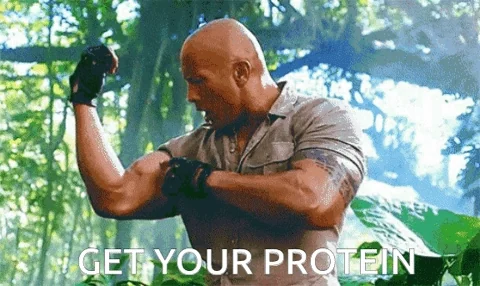What does protein actually do for your body
Advertisements

Ever notice how some of the most common things in life are things we don’t really understand? A great example of this is protein. The average person understands protein as a way to help them make mad gains at the gym, or maybe just how restaurants ask whether they want chicken or beef. However, very few people can explain what protein does for the body or even define what it is.
Look, we get it…it’s been a long time since you took classes in science or health, and things might be a little rusty. That’s why we decided to help out by putting together a little protein primer. By the time you’re done, you’ll know more about what protein is, why it’s important, and above all, what it actually does for your body.
Ready to take your diet and health knowledge to the next level? Keep reading to discover everything you need to know about protein!
What is protein?

Before we can go any further, it’s important to discuss the most fundamental question. Specifically, what is protein? On the most basic level, protein is a macronutrient, which is just a fancy word for something that your body needs plenty of on a regular basis.
Protein is necessary to help your body grow and develop. That’s one of the reasons that you see bodybuilders and health-oriented people focusing on protein consumption: to help them develop muscles and generally get the most out of each workout.
Incidentally, foods like meat and fish aren’t actually proteins, but they are referred to as such at restaurants simply because they have so much protein in them. However, protein isn’t limited to those foods…in fact, you can find plenty of it in both beans and seeds.
RELATED: What Happens To Your Body When You Eat Acai Every Day?
Why protein is so important

We touched on the very basics earlier, but you should know that protein is important for many different reasons. You’ve probably heard of it referred to as a “building block” for your body, and that’s quite literal. Literally every cell inside your body needs proteins, and there are major consequences when you don’t get enough of them. Specifically, you will start losing muscle mass, making you feel potentially weaker than ever before.
While all of us need protein for the entirety of our lives, it is particularly important for children to get enough of it. That’s because their bodies are still developing, and getting enough protein can help the kids grow up to be strong and healthy. Older people can’t skimp on the protein, however, because it helps bodies produce enzymes and hormones while keeping things like your vision and immune system response healthy and robust.
Understanding different kinds of proteins


Most people use the word “protein” as a kind of catch-all term, but that’s not entirely accurate. In reality, there are many different kinds of proteins, each of which is made up of amino acids. Nine of those are vitally important for your body, which is why they are referred to as “essential amino acids.”
Any time a protein provides all nine of these important acids, it is referred to as a “complete protein.” That brings us back to why fish and poultry are important parts of your regular diet: every meat serves as a complete protein.
Eating a variety of foods can help you get plenty of proteins, and certain diet combinations can ensure that you get the right ones. For example, rice doesn’t have much protein on its own, but beans do. Therefore, the traditional Mexican dish of rice and beans provides all nine of the most important amino acids, one tasty bite at a time.
RELATED: 7 Surprising Things That Happen When You Eat Lemons Every Day
What happens after you eat protein?

Sometimes, new bodybuilders assume that all of the protein they eat goes right to their muscles. That’s not really how it works, though. It takes your body time to break down all the food that you eat, and during the process, the food you ate earlier gets broken down into the various amino acids that your body needs.
As your body digests the food, your stomach will begin to break it down and your small intestine will do the rest. After you have those amino acids inside of you, they begin doing amazing things to your body.
What your body does with protein

Just what happens to the amino acids inside the food that you eat? They go to your liver. In turn, your liver will transform those various acids into all of the different proteins that your body may need. For example, the proteins may help boost your immune system, and they help your body’s tissues to grow and repair.
Why do we constantly need to eat more protein, though? Basically, your body has no way of holding onto the excess protein that it doesn’t really need, which is why your body stores the excess in fatty tissue. By getting a constant stream of proteins, our bodies can get everything they need to prosper.
